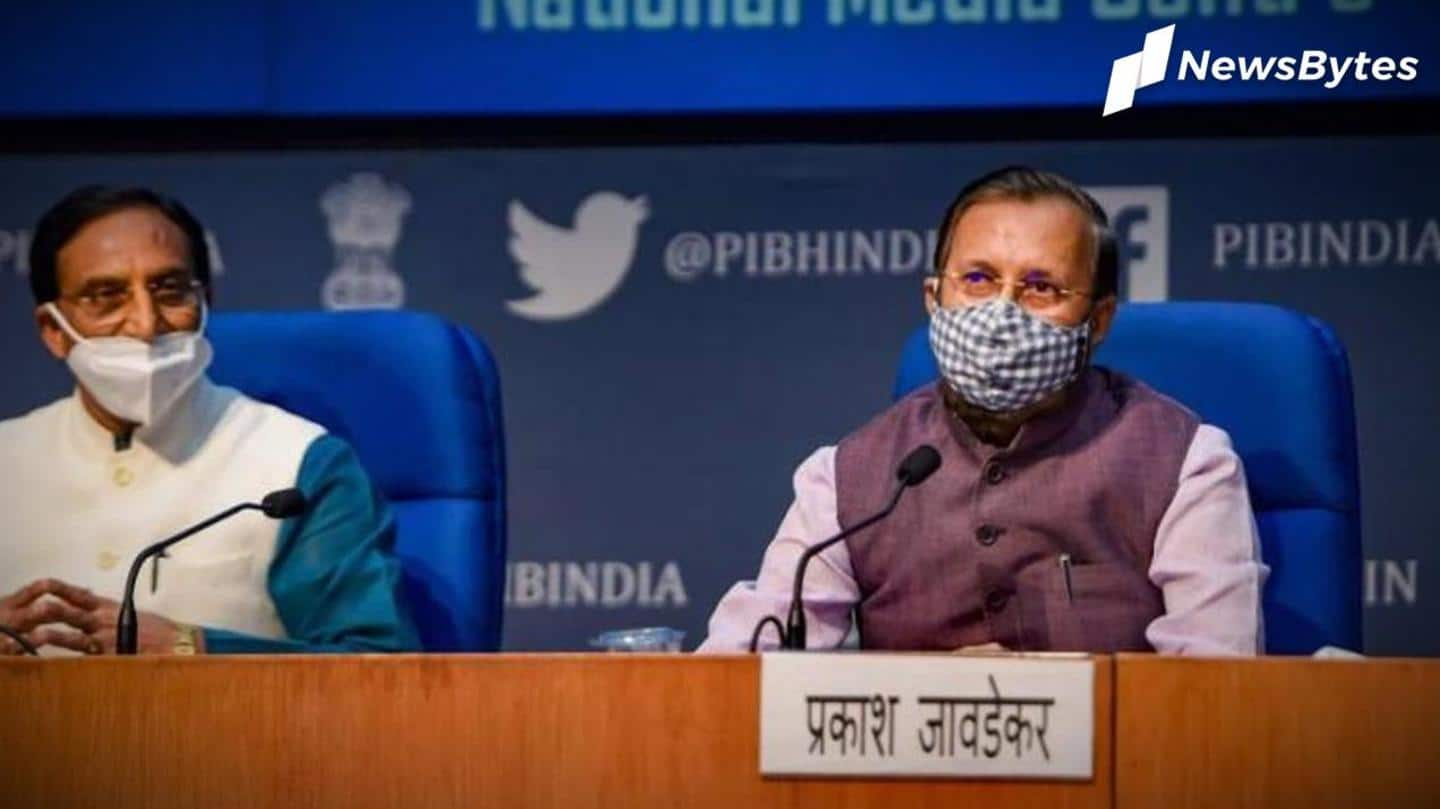
India gets new education policy: Here are the highlights
What's the story
The Union Cabinet on Wednesday approved the new National Education Policy (NEP). The Ministry of Human Resource Development has also been renamed the Ministry of Education.
Union Ministers Prakash Javadekar and Ramesh Pokhriyal Nishank held a press conference detailing the new education policy, which includes a single common entrance exam for all colleges and the discontinuation of MPhil.
Here are all the highlights.
NEP
No changes in education policy for 34 years
During the press briefing, Javadekar said, "It's important as for 34 years there were no changes in the education policy." The NEP was drafted in 1986 and updated in 1992.
He said the Cabinet has given its approval to a new education policy for the 21st century.
The government aims to introduce the policy before the new academic session begins in September-October.
Major reforms
Education to get 6% of GDP
Public investment in education will be raised from 4.43% of GDP to 6%.
The government is aiming at a 50% gross enrolment ratio by 2035. Higher Education Secretary Amit Khare said that there will be multiple entry/exit points for those who wish to leave the course in the middle and their credits will be transferred through Academic Bank of Credits.
Major reforms
Higher education institutions should become multidisciplinary by 2040
The NEP 2020 will be available in 22 languages and audiobooks.
All higher education institutions shall aim to become multidisciplinary institutions by 2040 and each shall aim to have over 3,000 students.
Departments of Languages, Literature, Music, Art, Dance, Theater, etc., will be established at all HIEs.
Even engineering institutions, such as IITs, shall become more holistic and multidisciplinary with more humanities courses.
Information
Single regulator for higher education
The new policy also envisions a single regulator for the higher education sector: the Higher Education Council of India (HECI). There will be a common entrance exam for all HIEs to be held by the National Testing Agency. However, this exam will not be mandatory.
Autonomy
Colleges to be more autonomous
Further, on the basis of the status of a college's accreditation, they will be given undergrad, academic, administrative, and financial autonomy.
The Higher Education Secretary said, "There are over 45,000 affiliated colleges in our country. Under Graded Autonomy, Academic, Administrative, and Financial Autonomy will be given to colleges, on the basis of the status of their accreditation."
Schools
10+2 system to be changed to 5+3+3+4
Additionally, under the new policy, the 10+2 system will be changed to a 5+3+3+4 format. The first five years of schooling will now include three years of pre-primary school and Classes 1 and 2.
Schools will also not have any rigid streams for science, arts, commerce, etc., and students can opt for whichever courses they want to.
Schools
Class VI students can opt for coding
Students will be allowed to take up coding from Class VI. Life skills will be taught every year.
The pattern for the board examinations will also be changed. Across states, the exams will test knowledge application and not rote learning. Each subject will have an objective and descriptive exam.
The report cards will be reviewed by teachers, peers, and students.
Other highlights
National Educational Technology Forum to be established
To focus on digital learning, a National Educational Technology Forum (NETF) will be set up.
Tech will now be a part of education planning, teaching, learning, assessment, etc. E-content will be available in regional languages, starting with eight languages initially including Kannada, Odia, Bengali, etc.
MPhil will not be required for students who want to pursue research.